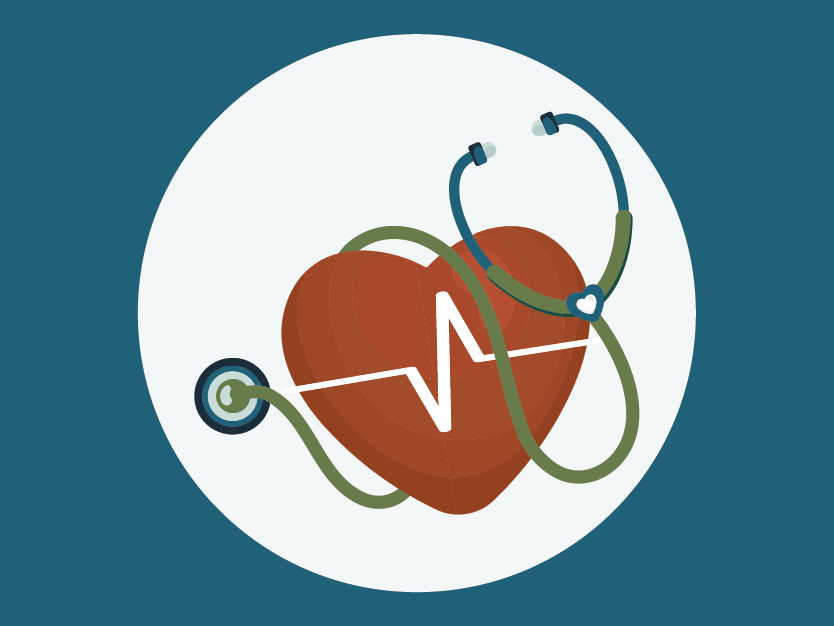On-Demand Webinar | Running For Your Heart
February is Heart Health Month—a perfect time to focus on the habits that keep your heart strong.

Financial stress is real. 53% of employees report being stressed about their finances. There are thousands of articles with tips for budgeting and most have the same advice. To put some of these to the test, HealthCheck360 team members Kelsey Smith and Ali Reeg tracked their spending for one month. Read on to see what they learned about their own spending habits and the changes they made to get a handle on financial stress that you can benefit from too.
Kelsey and Ali both agree that tracking your finances is major reality check! Here are 8 tips that worked well for them, and just might work for you too!
Hold Yourself Accountable. Budgeting templates and apps are great tools only if you remember to check-in and actually use them! Whether using pen and paper or an electronic system, track as you go or schedule time to review and track your expenses and actually keep that appointment. Being dedicated to the exercise will give the best insight into your spending habits and finances.
Categorize Your Expenses. This practice lets you see if you're spending money on a category you hadn't initially budgeted for. This categorization helped us see how much money we were spending on gifts for things like weddings, birthdays, baby showers and even a few graduation parties. It really added up by the end of the month and was spending we weren't even aware of.
Follow the 50/30/20 Budget Rule. This is a rule of thumb where you spend 50% of your take-home pay on needs, 30% on wants, and 20% on savings. For example, if your monthly take-home pay is $2000, you spend up to $1000 (that's the 50%) on needs like rent/mortgage, bills, and food. Then stay under $600 (that's the 30%) on wants like new clothes, movie tickets, or coffee treats, and then set aside at least $400 (the 20%) for savings like a savings account or 401(k). This strategy ensures you're paying yourself first for things like retirement savings and paying down debt.
Monthly Subscriptions are Sneaky. Streaming services, meal kit delivery, and customized boxes that magically appear at your door add up very quickly. Prioritize what's important to you and cancel the rest.
Annual Fees Pack a Punch. Wholesale memberships, credit cards, and expedited shipping programs for retailers (like Amazon Prime) bill annually and it's easy to forget to cancel them. Set a reminder for a year after first signing up for these services and evaluate if you really need them.
Hit That Unsubscribe Button. Being on all your favorite brand's e-mail mailing lists means you are first to know about a sale. While it may seem like you are saving money, you're actually spending more money than you probably intend to. Unsubscribe from these mailing lists and only buy when you really need something.
Allow Yourself to Enjoy 'Fun Funds'. Don't be afraid to treat yourself. Budgeting isn't about depriving yourself of things you enjoy, it's about setting reasonable limits for yourself. Just like when you start a healthy diet, if you cut everything out all at once, you are likely to end up binging at some point. Treat yourself to things like morning coffee, but set your budget and stick to it. This may mean cutting back to once a week or once a month instead of a daily treat.
Evaluate Healthy vs Unhealthy Habits. Consider a food plan that accommodates your budget, schedule, and health goals. Plan out your meals to avoid last minute drive through or delivery, both usually end up costing you more in dollars and calories. Decide between at home workouts, fitness classes, and a gym membership. If you're unsure, use trial memberships to figure out which options work for your lifestyle.
Ultimately, healthy money habits aren't one-size-fits all, but there are common traps many of us fall in to. When you're staying on top of your finances and holding yourself to making good decisions, you'll feel better not just about what you're doing for yourself, you'll start to see your financial stress decrease over time as you catch-up on bills, save more, and spend smarter.
If you would like more tips or information check out this webinar or this poster on financial wellness.

February is Heart Health Month—a perfect time to focus on the habits that keep your heart strong.
![[Free Download] February 2026 Well-Being Calendar](https://www.healthcheck360.com/hubfs/1.%20Marketing/Well-Being%20Calendar/2026/February/February%20Calendar%20Images%202026_myHC360+%20social.png)
February is the perfect time to focus on your heart health and build habits that last. Our February Well-Being Calendar is a simple, daily guide...

Adding garlic and ginger to ramen is a game changer! This recipe has vegetables, lean protein, and lots of flavor. Give it a try and let us know...